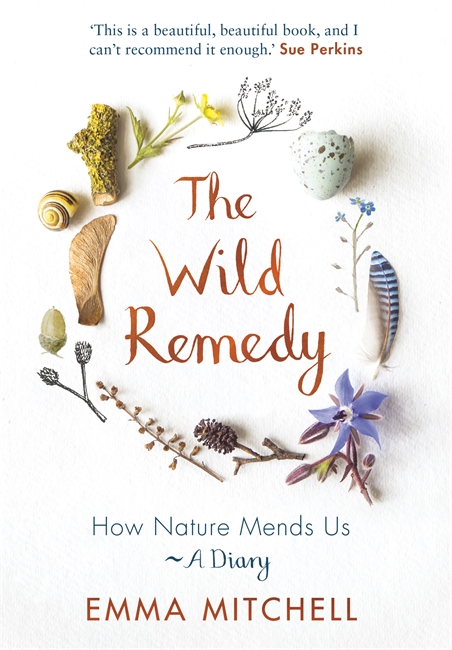
Reviewed by Ian Carter
It is increasingly widely recognised that nature is good for us. Most of us instinctively know this to be true and the science is gradually getting to grips with how this works; the biochemistry of a visit to the local woods and its impacts on our health and well-being. Science is slowly unravelling the mechanisms by which stress hormone levels drop, beneficial neurotransmitter levels rise and our immune system gets a nudge in the right direction.
This book is not about the science (though it touches on it) but offers a personal perspective of how a connection with nature can improve well-being. It is the story of a year’s worth of nature therapy, and how this works for the author during the ups and the many downs of a year.
Diary-style accounts take us through the year, accompanied by the author’s photographs and paintings, which add greatly to the book’s appeal. I especially liked the Gerald Durrell style photo pages (reminiscent of his Amateur Naturalist) showcasing gathered bits and pieces from her walks, with annotations or paintings added alongside.
The book is brutally honest about her struggles with mental health issues, especially during the dark, colourless days of winter, and the long recovery thereafter. Indeed, the book is as much about her response to what she sees and the impact it has on her state of mind as it is about the wildlife itself.
The nature therapy she writes about is mostly within walking, or short driving, distance of her home on the edge of the Cambridgeshire fens, although a few longer trips to the coast are included. The wildlife is very much the common animals and wild flowers that are easy to find. And on her lowest days, when a walk is not an option, the only contact with nature is through time spent in her garden, or just looking out of her cottage window.
Despite the brutal honesty, this is a warming, gentle book and it imparts its own mild therapy as we are guided slowly through the year.
The Wild Remedy: how nature mends us – a diary by Emma Mitchell is published by Michael O’Mara Books.
Inglorious: conflict in the uplands by Mark Avery is published by Bloomsbury – for reviews see here.
Remarkable Birds by Mark Avery is published by Thames and Hudson – for reviews see here.
[registration_form]